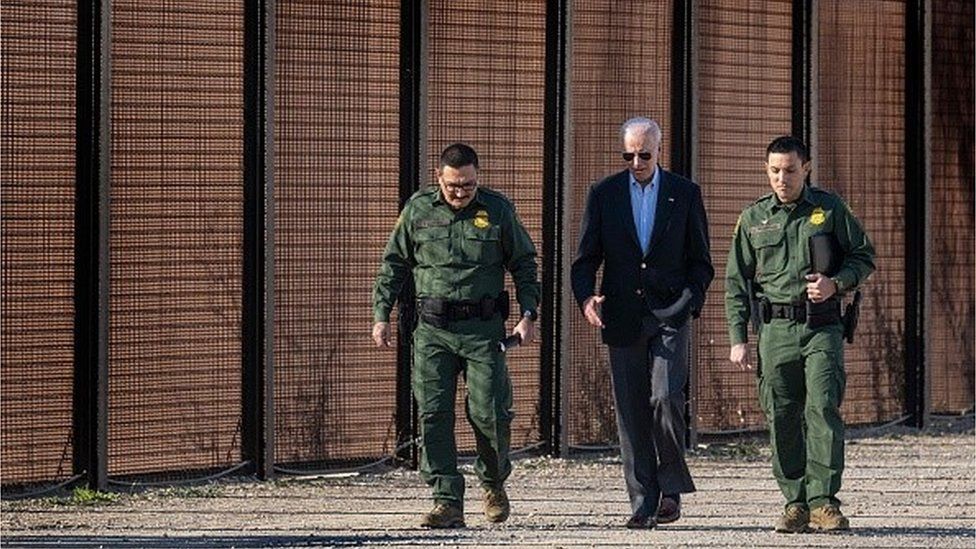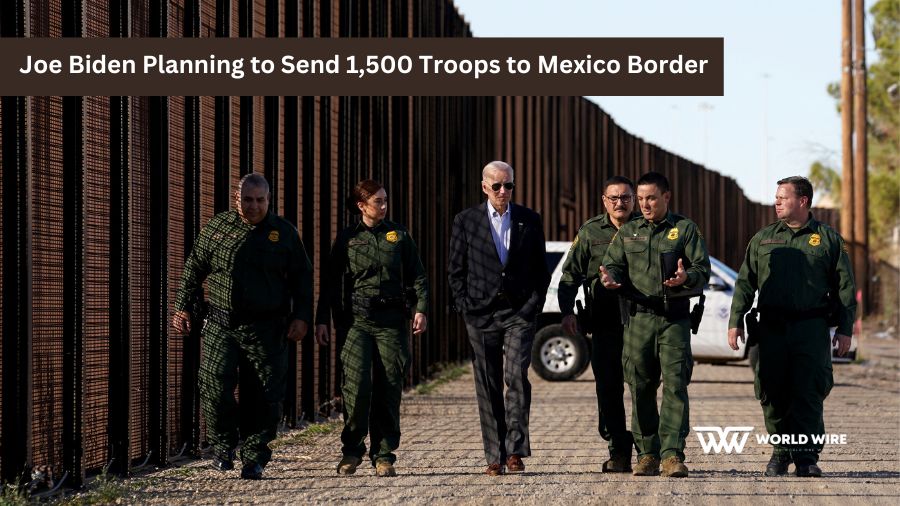Title 42, a public health law that allows the United States to reject asylum and immigration applications for public health reasons, is expected to expire on May 11. According to some top US officials, the end of Title 42 may encourage more immigrants to cross the border into the United States from Mexico in search of a better life.
To take action on this issue, one of the top Senate Democrats, Joe Biden, plans to send 1,500 more active-duty soldiers to the southern border, calling it “the militarization of the border” and “unacceptable.”
On Tuesday, Sen. Bob Menendez (D-N.J.), chair of the Senate Foreign Relations Committee, released a statement: “The Biden Administration’s militarization of the border is unacceptable. There is already a humanitarian crisis in the Western Hemisphere, and deploying military personnel only signals that migrants are a threat that requires our nation’s troops to contain. Nothing could be further from the truth.”
According to the DoD official, the National Guard members already stationed at the border are on active duty, which means that the federal government, not their respective states, is funding their mission. They are aiding border agents with surveillance and detection.

The mission was approved last week when President Joe Biden issued an executive order allowing the government to mobilize active-duty forces to address drug trafficking at the southern border. DHS then requested assistance from the Pentagon.
Later on Tuesday, Brig. Gen. Pat Ryder of the Pentagon announced that the deployment had received the approval of Defence Secretary Lloyd Austin. Lloyd Austin granted DHS’s formal request, allowing soldiers to join the 2,500 National Guard troops who had previously been activated to support border law enforcement.
According to Ryder, the military members, mostly from Army units, won’t be involved in enforcing the law. According to officials, they will only be engaged in monitoring and administrative duties while armed for self-defense, freeing up Border Patrol officials to handle migrant claims.
The additional soldiers will fill “critical capability gaps,” such as detection and monitoring, data entry, and warehouse support, in response to a Department of Homeland Security request. They will stay there for up to 90 days, after which contractors or military reservists will do the work.
[fvplayer id=”886″]
Before Title 42 expires, the Biden administration plans to establish migrant processing facilities in Latin America. Centers are set up throughout Latin America, with Guatemala and Columbia being the first two locations to allow those escaping poverty and violence to seek asylum without crossing the border.
Along with punishing those who cross into the United States illegally through Mexico, the administration has also implemented new regulations to examine and deport asylum seekers at the border swiftly. The Immigrant rights groups have opposed the new policies, claiming they are identical to a Trump proposal rejected by the courts.
The Biden administration’s action seems to mimic the tradition of presidents employing the military to cover the Border Patrol’s staff shortage since Congress hasn’t fully funded the agency to carry out its duties.
The former Trump administration also made similar troop additions to the border to strengthen security. More than 3,000 additional active duty soldiers were sent to the southern US border at the beginning of 2019 to join the 2,300 soldiers already stationed there.
Also, Read | Watch State Of The Union Address Speech by Joe Biden
However, Biden’s Republican critics believe bringing down troops will do little to ease the border. In comparison, the Democrats didn’t react strongly to the administration’s decision to deploy active-duty troops to the border with Mexico.
The anticipated migrant wave next week is crucial for Biden, who will have to manage another potential border crisis shortly after announcing his bid for president in 2024. This will expose him to criticism from Republicans who have attacked the administration and are using the issue to challenge the president in the upcoming election as well as from allies who claim his enforcement measures are too harsh.







Add Comment